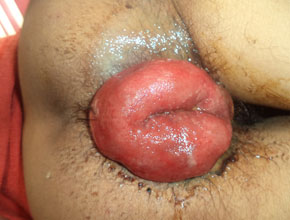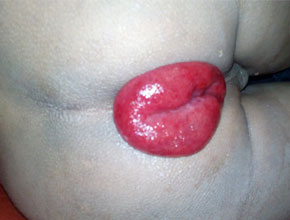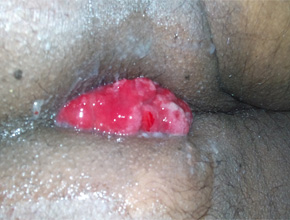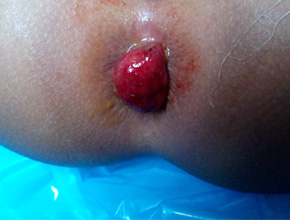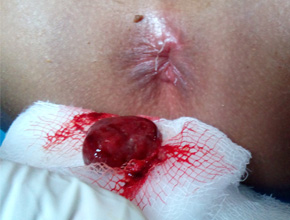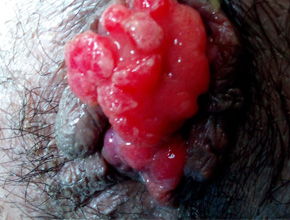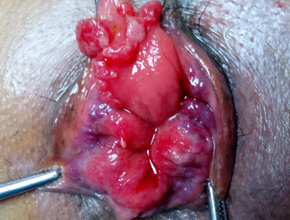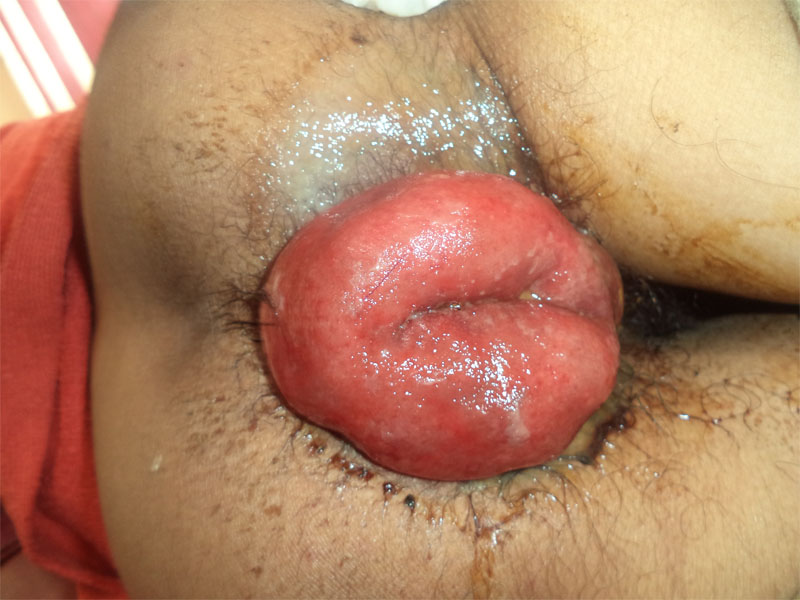
What is rectal prolapse?
Rectal prolapse occurs when part or all of the wall of the rectum slides out of place, sometimes sticking out of the anus
Causes of rectal prolapse
Many things increase the chance of developing rectal prolapse. Risk factors for children include:
- Cystic fibrosis. A child who has rectal prolapse with no obvious cause may need to be tested for cystic fibrosis.
- Having had surgery on the anus as an infant.
- Malnutrition.
- Deformities or physical development problems.
- Straining during bowel movements.
- Infections.
Risk factors for adults include:
- Straining during bowel movements because of constipation.
- Tissue damage caused by surgery or childbirth.
- Weakness of pelvic floor muscles that occurs naturally with age.
Symptoms of rectal prolapse
The first symptoms of rectal prolapse may be:
- Leakage of stool from the anus (fecal incontinence).
- Leakage of mucus or blood from the anus (wet anus).
Other symptoms of rectal prolapse include:
- A feeling of having full bowels and an urgent need to have a bowel movement.
- Passage of many very small stools.
- The feeling of not being able to empty the bowels completely.
- Anal pain, itching, irritation, and bleeding.
- Bright red tissue that sticks out of the anus.
Treatment for rectal prolapse
In the early stages of your condition, your doctor may advise you to eat plenty of fruit and vegetables and other foods that contain fibre. He or she may suggest you take bulking laxatives, such as Fybogel, to help you empty your bowels without straining. Your doctor will also advise you to drink enough water.
In children, rectal prolapse usually gets better without any treatment. Your GP will give you advice on how to get your child into a regular bowel routine. Ensure your child has plenty of fruit and vegetables in their diet, as well as foods that contain fibre. Also ensure your child drinks enough water. Your GP will also advise you on how to push your child's rectum back into their anus when it prolapses.
Occasionally, your doctor may recommend your child has an injection of a substance called a sclerosant to help destroy the prolapsed tissue or surgery. However, this is only considered if other treatments have not been successful. It will also depend on how old your child is and how serious their condition is.
Surgery
The only way to effectively treat a full-thickness rectal prolapse is to have surgery.
There are different types of surgery, but each type falls into two broad categories. This depends on where your surgeon will make the cut to operate on you. Your surgeon will either make a cut in your abdomen (one cut or a number of smaller cuts), or around the prolapse itself. If around the prolapse, it's known as perineal surgery.
Your surgeon will advise you on the best type of operation for you. It's important to remember that the rectal prolapse may come back after you have surgery by either method. The likelihood of a successful operation will depend on the type of surgery you have and your individual circumstances. Ask your surgeon for more information.
